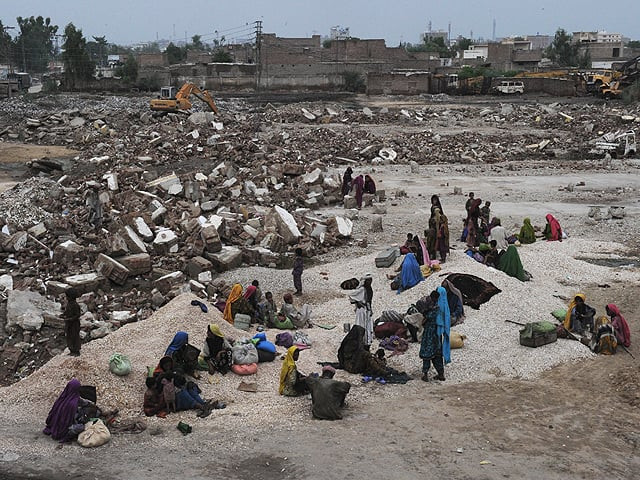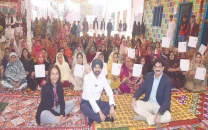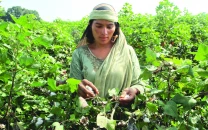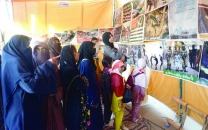Govt to build 3,000 villages in flood-hit areas
Sindh govt to construct 3,000 model villages, 6,400 new schools in flood-affected districts of the province.

Addressing a meeting with delegations of Oxfam and Participatory Development Initiatives (PDI), a local NGO, he discussed issues of rehabilitation of flood survivors.
The adviser informed the visiting delegation that apart from the model villages, the government has also decided to install 5,000 filter plants in different villages. “The government is also training flood survivors to start their livelihood,” he said.
Bengali said the communication system has been destroyed as roads were swept away by the flood and so the government has decided to provide road communication facilities to the people of rural Sindh. “Nine new highways will be constructed in Sindh [and we’re] giving contracts to foreign firms,” he added.
Meanwhile, Sindh planning and development secretary Naheed Durrani informed the delegation that 8,000 girls in the flood-hit areas were imparted with vocational training in the flood camps with the support of the National Commission for Human Development.
She added that the provincial government would continue the Landless Hari Programme, despite the colossal loss in the floods.
Oxfam representative Fatima Naqvi and PDI director Sikandar Brohi drew the adviser’s attention towards litigation cases of poor women who have been granted land under the Landless Hari Distribution Programme. They are facing issues as influential landlords have occupied their land or filed cases against them, the representatives explained.
The adviser said the Sindh government would set up a legal cell for women facing the cases. The government has also appointed veteran legal expert and former Sindh High Court Justice Nasir Aslam Zahid.
Published in The Express Tribune, December 1st, 2010.



















COMMENTS
Comments are moderated and generally will be posted if they are on-topic and not abusive.
For more information, please see our Comments FAQ